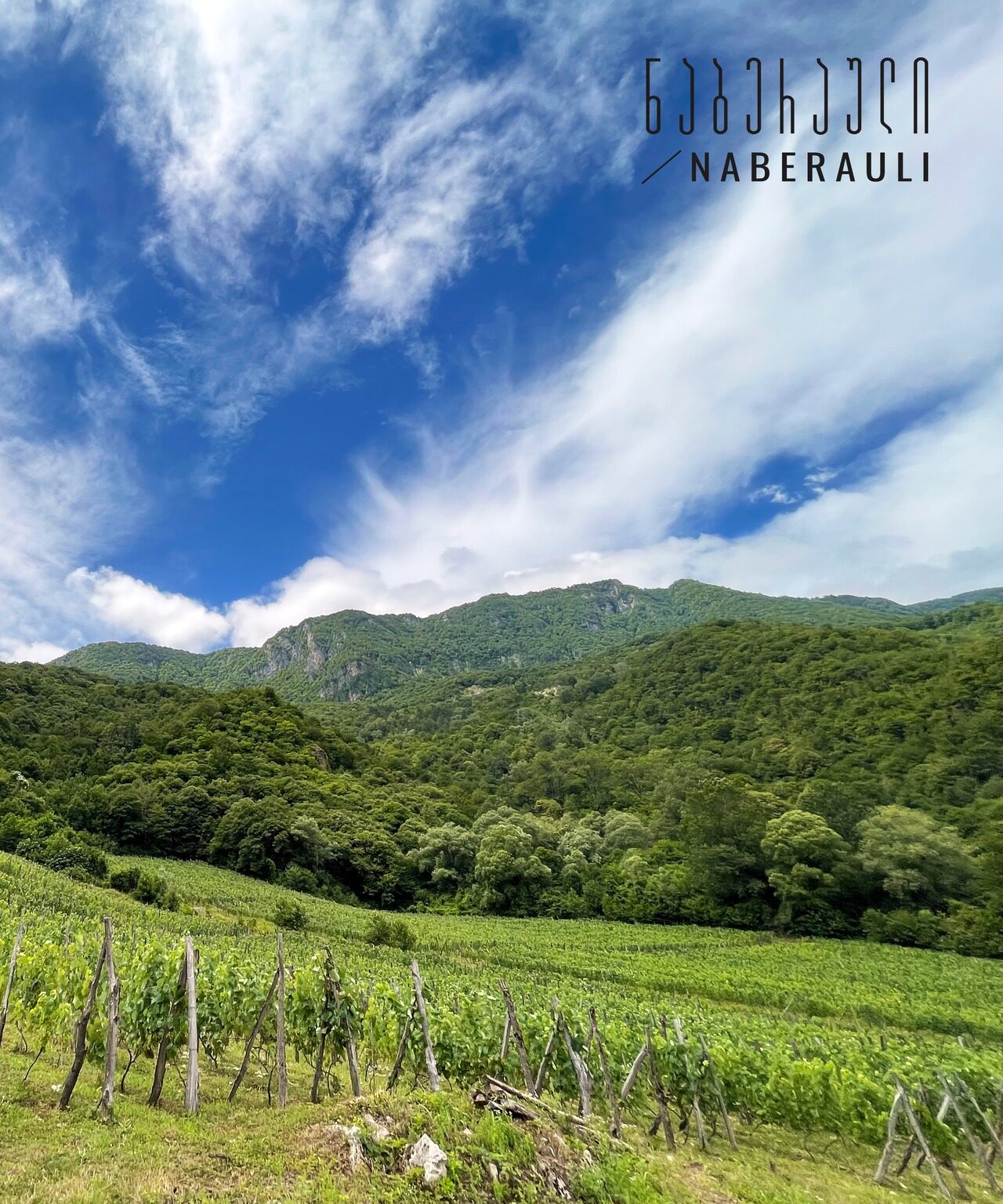Racha-Lechkhumi
The vineyards of the company “Naberauli Wines” are located in Racha, on the southern slopes of the Caucasus range. They are situated in a microzone known for “Khvanchkara.” The vineyards are on the right bank of the Rioni River (in the village of Sadmeli, Ambrolauri municipality). The company’s high-quality wines are determined by a premium raw material base, which, in turn, is influenced by favorable agro-ecological conditions (soil and other enviromental factors such as air temperature, sunlight, precipitation, relief, etc.). The vineyards are established at an altitude of 550 meters above sea level on the southern slope of the Lechkhumi ridge. The annual amount of atmospheric precipitation is between 1050-1100 mm. The average temperature in January ranges from -2°C to -1°C, while in July, it reaches between 19°C and 21°C. The total active temperature sum is 3350°C. From July to September, Racha mainly experiences cool and misty nights and warm, sunny days, which leads to high sugar content, full ripeness, and complexity in the grapes. Harvesting in Racha begins according to grape varieties, from the end of September to the first half of October.


Soil
The soil type is cordian-carbonate (marly-carbonate) leptosol (LEPTOSOLS RENDZIC). It is characterized by a distinctly expressed humus horizon. The reaction is alkaline, with a medium and heavy clayey mechanical composition (texture). The physical clay content in the soil at a depth of 0-30 cm is 32%, and at 30-60 cm it is 46%. There is a low content of organic matter (humus). The soil is carbonate from the surface, and the amount gradually increases with depth (the CaCO₃ content increases from 6.62% in the 0-60 cm layer to 12.79%). The clay-like quantity in the soil contributes to good permeability, water retention, and aeration, ensuring the good growth and development of the vine, the wine’s bouquet, and its velvety texture. The presence of carbonates makes the wine more aromatic. Proper calcium nutrition improves wine quality and enhances the balance of acidity and sweetness in the grapes, resulting in higher quality wine.
Winemaking
The winemaking philosophy conveys the authentic character of the region, highlighting its unique terroir components, from the mountainous landscape and varied soils to the temperate climate. We achieve this with wines made using both classical and low-intervention Georgian traditional methods — specifically, using Qvevri. We strive to create unique products with vineyards cultivated through non-irrigated practices, minimizing intervention and reducing our impact on nature as much as possible.
